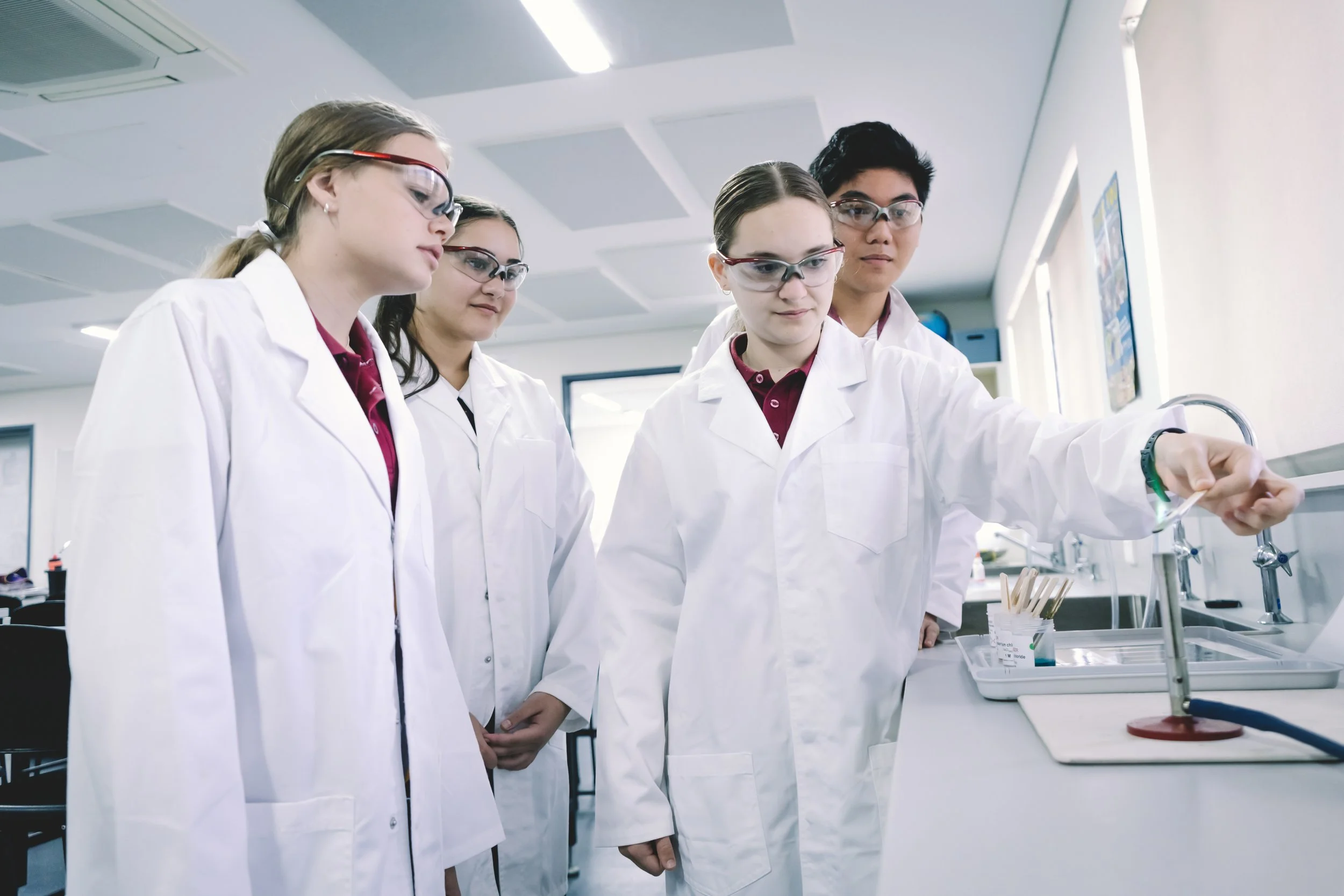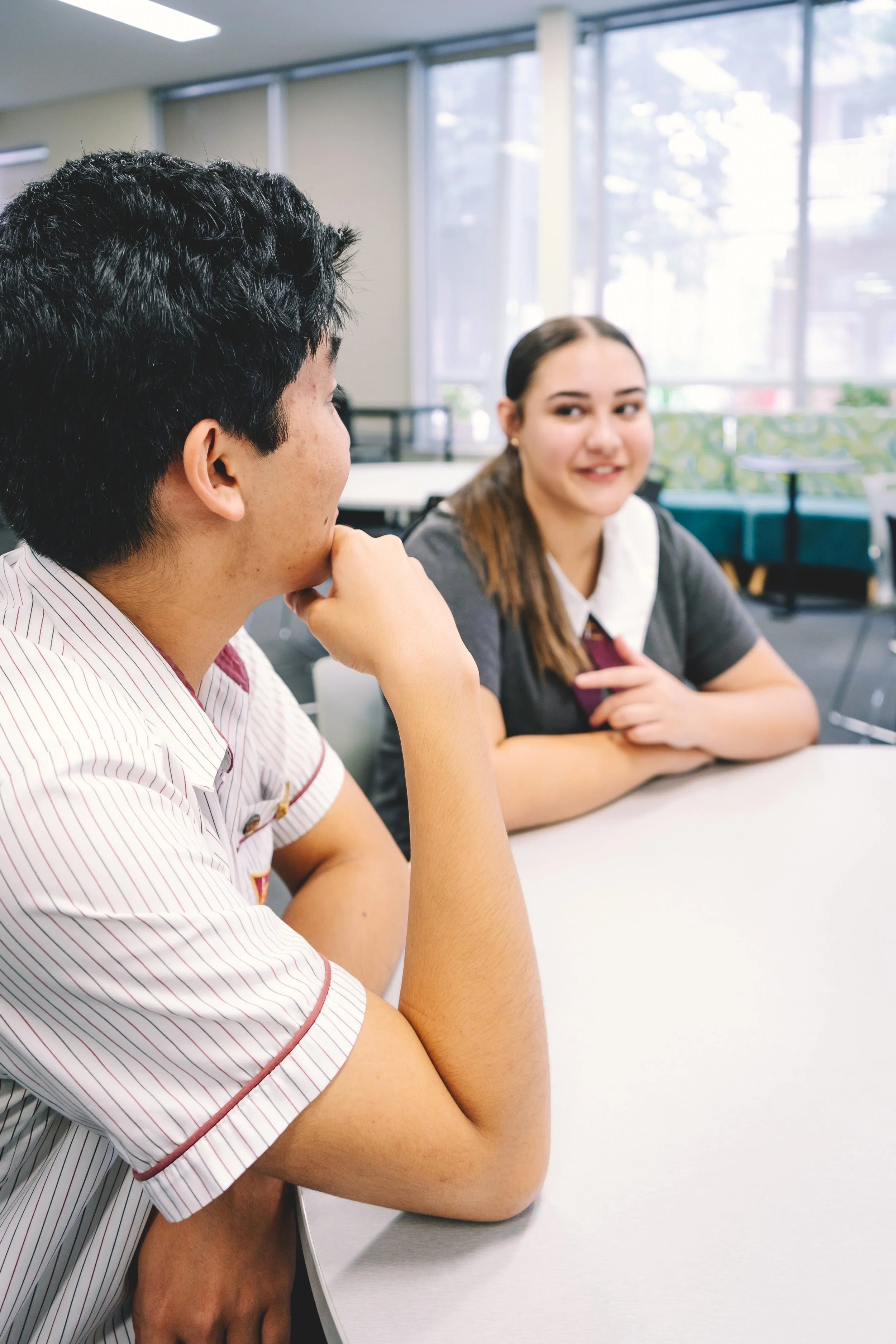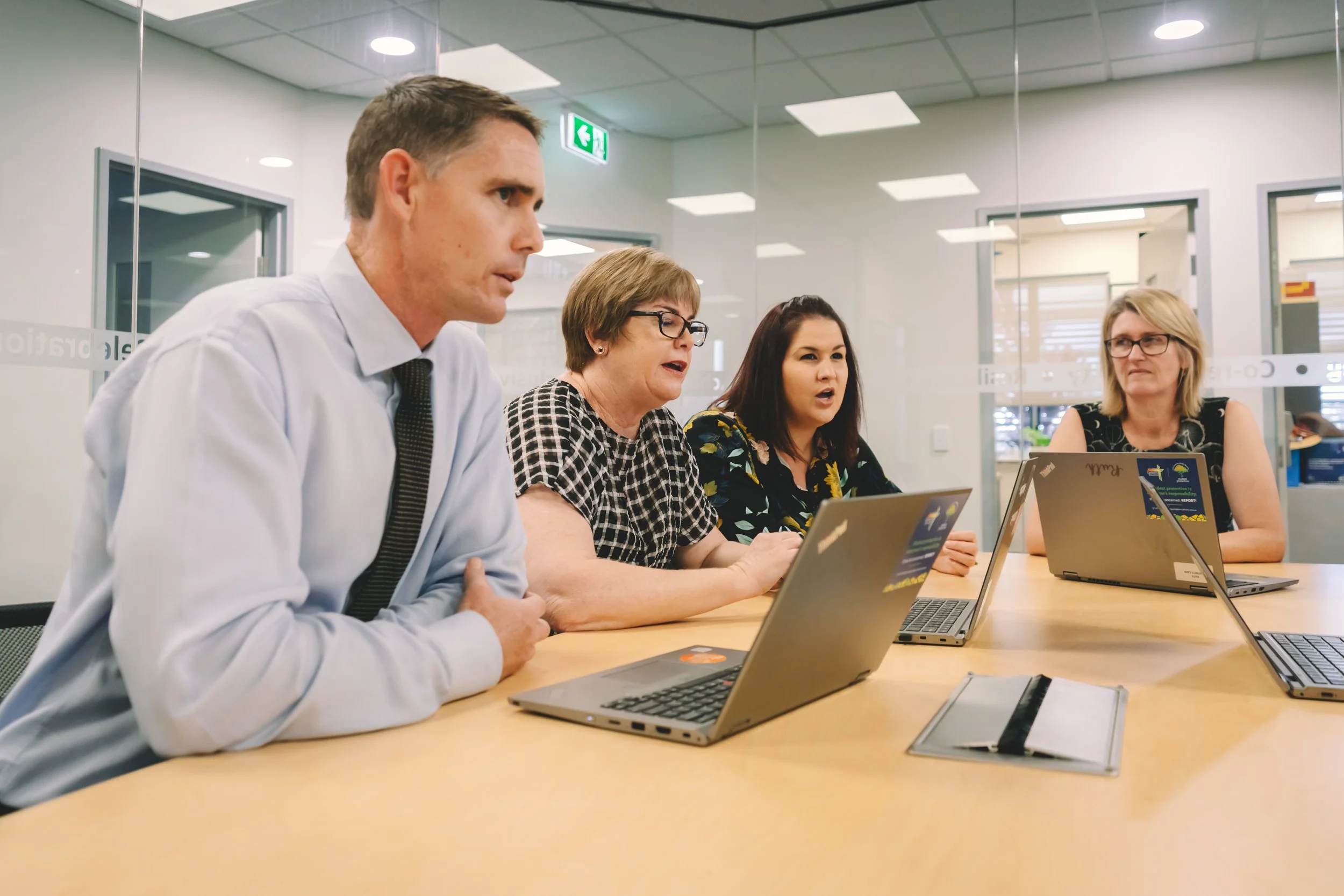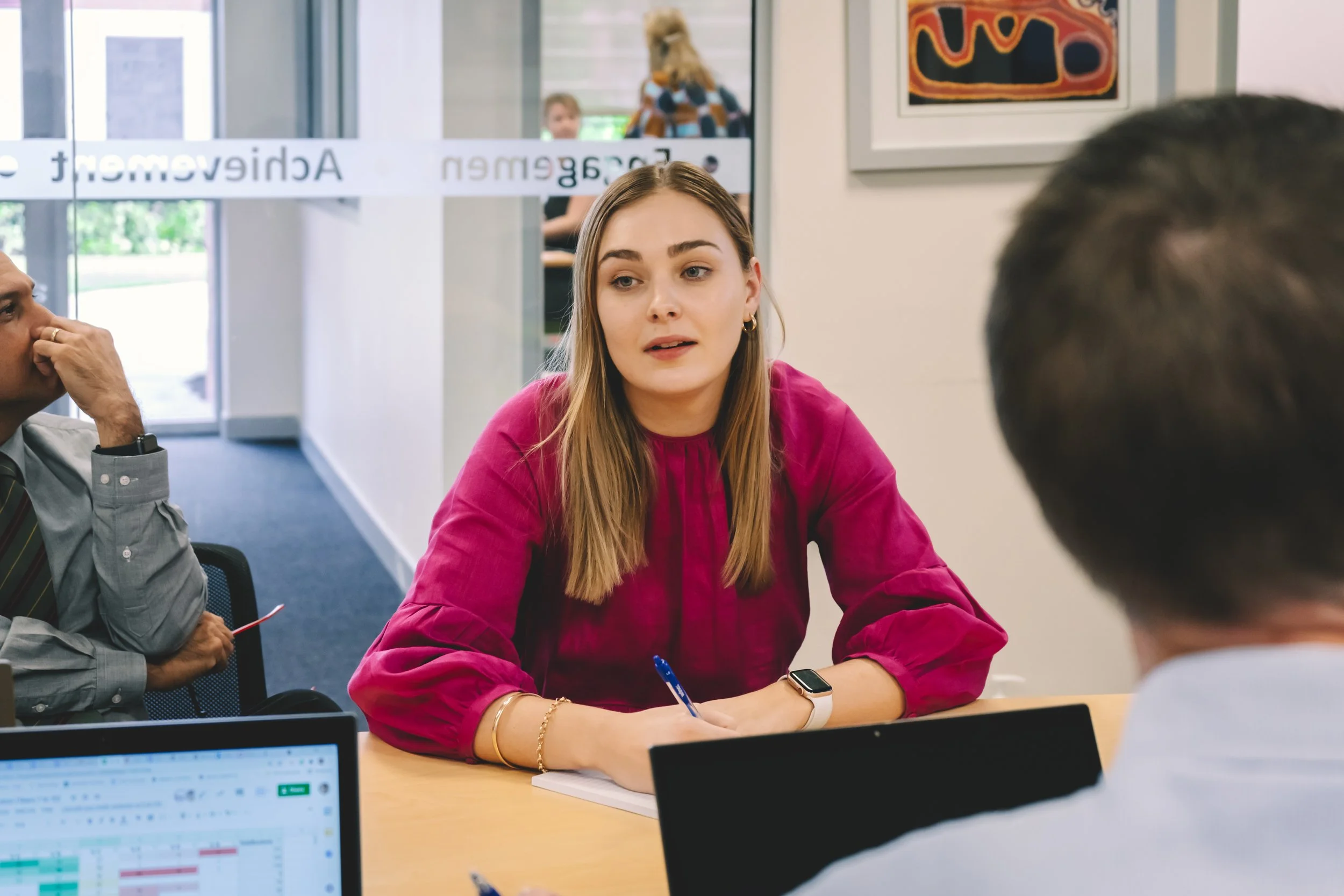Fleur Johnston On Opportunities For Education Reform Identified By Big Data
PeopleBench CEO and Founder, Fleur Johnston has more than 20 years’ experience in workforce and digital transformation.
Driven to create change for good, Fleur founded PeopleBench with the aim of empowering school leaders to build great school workforces to achieve the best possible outcomes for students. Fleur is passionate about helping the education sector evolve based on the changing landscape of work, the effects of technology, and a global shift in expectations. Fleur believes that people must be at the heart of the future of education and that workforce strategy—underpinned by research, data, and metrics—will play a role in the path to better student, and therefore social and economic, outcomes globally.
Fleur is a Fellow of the Australian Human Resources Institute, Graduate of the Australian Institute of Company Directors, Executive Advisor to the Queensland University of Technology’s Executive MBA program, a proud University of Queensland alumni, and UQ Ventures contributor as mentor and judge. In 2020, Fleur became a graduate of the globally-recognised Springboard Enterprises Tech-cohort Accelerator and was the recipient of a highly competitive Boosting Female Founder Initiative grant awarded by the Australian federal government.
Fleur discusses how data and technology can strengthen Australia's teaching workforce and help schools grow sustainably.
Highlights from the interview (listen to the podcast for full details)
[Indio Myles] - Could you please share just a bit about your background and what led to your interest and work in education and workforce development?
[Fleur Johnston] - I started my background in workplace psychology, and after starting my career in the State Government in Queensland, I spent the next number of years working across roles in strategic HR, and then on really large multi-agency change initiatives. A lot of those were really focused on how we could improve the experience of citizens when they are accessing public services. I've pretty much always been fascinated in how we can design interventions at that big systemic level to have an impact in the community, and in particular, I've been really interested in how we can put the humans who work in organisations at their absolute best. Fundamentally, that's what has the most significant influence on folks in communities, and that's what my work has always been about. In my early chapters, I was pretty privileged to work with amazing people apart of really big technology transformation agendas, and I learned a lot about how we could create better systems, processes and ways of delivering services.
This was so that we could deploy limited resources, whether that's tech-based or in a smaller not-for-profit environment, for maximum effect to the recipients who need those services. I guess that's also where I started to get pretty interested in the intersection of workforce start-ups and community impact information. A lot of that work happened during a period where the tolerance for government agencies working unto themselves was already starting to become pretty low, and the appetite to take on ideas that are gaining traction especially in the UK at the time which aimed to put the citizen at the heart of how we design and deliver services were really starting to gain traction in Australia too. Of course, as soon as you start thinking about how to redesign services, you also have to think about how you redesign workforces so that they can deliver the services in new and different ways.
That's where it all started, and then I had a chapter working in Europe for the board as the CEO of Large Hospitals and Health Services, and that was at a time when we were seeing a real crisis in the supply of nurses globally. That provided an opportunity for me to do some really innovative work with other people who were from all different professional domains and disciplines to deal with the challenges of the work force. This is because when one of your challenges is supply, you can't just fix that, especially not in an international labour supply crisis. You can't just 'magic up' more nurses, so you have to start looking at more innovative strategies in addition to trying to think about how we grow more nurses.
You have to look at some things around your operating models, organisational design and workforce strategies to not just deal with the immediate pain but influencing the better medium and long-term growth for an industry's workforce.
That was probably the landscape at the time, and then I came back to Australia and worked with pretty amazing people on change and industrial relations aspects of what was the largest student administration implementation in the Southern hemisphere at that time. That was a crash course in the intersection of technology and workforces, in that case, in the tertiary education space. I guess also I had grown up in a family with a mother who was a teacher, and while I was off on these fantastic adventures learning how to build amazing workplaces and implement substantial workforce change, I actually couldn't reconcile the poor experience of being employed as a teacher that my mum was having. I guess I thought about that huge gap at the time, but it was only really when I was working with K-12 schools on strategy here in Queensland when I returned home, that some of the missing pieces of that puzzle really started to sink in for me.
You're now the CEO and Founder of the PeopleBench. Can you tell us more about the organisation's mission and how it strives to achieve it?
PeopleBench exists to build better school workforces, and ultimately that's because we believe that when teachers can be at their personal and professional best, then they can achieve fantastic outcomes for and with the students they serve. It's very hard to be impactful as a teacher if you're fried and overworked or potentially working in a domain out of your expertise or experiencing workplace violence. We are hearing horrible stories in the press about the reputation of the profession. If you couple that then with being in a school that is perhaps finding it hard to attract new staff, that can be a pretty demoralising place to be. I think it's important to understand the landscape that we're working in education. In 2016, UNESCO were predicting a 69 million teacher shortfall to meet the needs of K-12 kids across the world, and in the UN Sustainable Development Goals, Goal Number Four is all about ensuring inclusive and equitable quality education. Within that, then there's the sub goal to increase the number of teachers in developing nations, but teacher supply even in really well-resourced economies is evaporating rapidly right now.
Before COVID, the US were predicting a 200,000 shortfall by the end of 2024, and that's a pre COVID statistic, so you can imagine what we expect those revised numbers to look like.
Even in Australia, we've had a range of shortfalls predicted across our states and territories, and we can see with the systems that we're working with that then causes a whole heap of symptoms that cause turnover symptoms, wellbeing and psychological issues. There really needs to be this quite urgent body of work done to try and help schools be in a better place. I guess the call to arms for everyone is that if we fail to address these things, we in fact won't have a sustainable teaching workforce and of course our communities who experience that first and hardest are usually those who are socioeconomically disadvantaged in some way. Our mission is to transform education through using data science approaches.
We collect information on school workforces as well as student outcomes, and we do the missing research to understand what it is about a school workforce that has the biggest impact on student outcomes.
Then we make that data and research findings available to everyone, and through our technology platform, we've provided a whole heap of pragmatic tools and resources for leaders in schools and systems in schools to be able to create a better workforce strategy so we can make schools great places to work, as well as for students to learn.
What opportunities currently exist for educators to revolutionise the way that schooling gets done?
This is such an amazing space right now. On the one hand you have these phenomenal drivers of rethinking schooling delivery through that lens of radically restricted staffing supply. At the same time, there are massive shifts in the landscape to do with technology solutions, including hybrid learning, the way we can deliver learning experiences, and for folks in teaching, completely different pedagogical practices (ways of teaching). You've also seen the rise of consumer mentality from families sending students to school over the recent years. That's a big shift for the sector and that's not how educators have seen themselves.
Most still don't in any way see themselves providing a consumer product. They're engaged in the lifelong mission of taking students and communities on learning journeys to being whole people.
That is the really noble piece of the work in the sector. Then you've had factors that have had really stark spotlights on them throughout the pandemic, even the significant role that schools play in enabling adult economic participation. In plain English, grownups can go to work when their children are at physical schools, and when we're talking about a different way of doing schooling, there's a significant impact in that space. I think the real opportunity is at the intersection of all of those different things coming together. If for example you reconsider who schools serve and the roles they play in those stakeholder's lives, then we might also reconsider the types of jobs we have in schools and the role that a physical school space plays in learning versus the digital environments we can make available as part of perhaps at home learning experiences.
If you take that a step further, you can look to the opportunities in reaching more students at a lower cost and higher quality, regardless of their geographic location and in many cases in spite of socioeconomic disadvantage.
You can re-imagine within that context that the experience of being a teacher is happening in a different way, potentially from different places and possible pathways. That really opens up a whole different landscape for what being a teacher might be like and how we can allow those teachers to have their best impact with students. I guess that's really where we're finding our work being so life giving right now, because you have got educators everywhere wanting to make this really right for students, and there's a big dawning awareness that really does mean making it right for teachers to serve. The data on workforce just comes right back in as a central underpinning to tapping into all of those opportunities ahead.
What are some of the biggest lessons that you've learned about effective leadership practices?
This is such an enormous question. Whenever I am fortunate to be in forums where we're discussing leadership and what does good leadership look like (I guess by virtue of my professional pathway), I've always been pretty exposed to those concepts. If you study a human centred space like psychology, you're always pretty tuned into the attitude and behavioural ideas on leadership. If I think back to my early career, I think I left university not knowing perhaps the role that discipline, processes, skills, system thinking and the analysis and translation of ideas in compelling narratives [play in success]. All of those things really throughout my career have been the pivotal pieces that take someone from understanding the theories of leadership to actually being able to be impactful with them in a workplace.
This is especially when you're thinking about leadership perhaps not in terms of leading a small team of people through a delivery of individual tasks or a large team through specific tasks, but if we're talking about taking really big, messy systems of diverse humans on a large-scale transformation change journey. Then, the importance of having processes, evidence and multiple data sources to underpin the decisions you're making and the influence you're trying to have actually becomes essential.
I think as my career has progressed, especially into advising others who have got really incredible leadership roles or sitting on government bodies, the latest that have really inspired me and have been effective in their agendas have been the ones who can balance humanity with progress. Knowing that if you're going to be able to progress it's going to require experimentation and sometimes getting stuff wrong. But, that process for taking calculated risks and always being able to measure effectiveness and impact are actually critically important especially when we're dealing in environments with finite resources. We're really focused on trying to distribute those resources to everyone who needs them.
Are there any potential challenges that you foresee for the development of a healthy Australian teaching workforce in the next five years?
I don't think you have to look far to see the narrative around this stuff, because whether it's the newspaper or people’s lived experience of turning up at the school gate and having members of the community, family and friends being in schools, you can see a number of the symptoms of the supply crisis. In addition to the supply crisis, from our perspective and certainly the work that we do, it highlights a real absence of significant workforce strategy over the last couple of decades.
I think some of those things we've already touched on: teacher burnout, the industrial action that starts to happen around that, attraction and retention challenges, discussion of teacher performance and what that means when we are talking about the development of whole humans.
You really only need to do a quick search online to see a plethora of thoughts and articles. But I think part of the real challenge is sorting the fact from fiction and the opinion from the research on all of those topics. One of the big challenges we see, and I certainly saw this when I was in senior government, HR and major project roles, is that often when we're talking about improving workforces, we always feel like we're waiting to get a massive, usually hideously expensive payroll or talent management system implemented before we can give leaders on the ground a data picture for where the challenges are in their workforce. The other piece of that is reluctance of systems to share their data (in many cases with good reason not just in terms of privacy and security). But internationally we've seen lots of initiatives put tables together for schools which sets up a competitive dynamic, which is in many cases not helpful. But the truth is that the aggregated picture of school workforces is so critically important to advancing research that the sector needs that as well as improving school leadership and practicing change. We believe why we've been working with the sector is to come up with a solution that is identified and provides privacy and dignity to school leaders to reflect on their own data privately and then publicly engage with their communities in what their improvement agenda needs to look like. Really getting this right for teachers and students requires taking parents and communities on the journey of change. These challenges are absolutely central, they're on the radars of policy makers and leaders, so I guess the thing is folks are going to know we need to do something, we're just not quite sure what.
We've been able to grow this national collaboration of research that we've been doing and continue to see partners who are a bit like us get looped into the whole, “if not me, then who? and if not now, then when?” mindset!
That's where we're at with some of those challenges, but I think the other one I'd just touch on would be not just about education (it's pretty universal), but especially in sectors where there's a high degree of emotional labour involved in work that's being done, and we all know that teaching is high emotional labour, the health and wellbeing of teaching workforces should be front and centre. This includes looking for strategies that are tangible and move beyond fruit baskets and massages, not that that is where schools are necessarily placing their efforts. Really having ways of making a concrete difference and moving beyond just a discussion and words around wellbeing is another central challenge that lots of great minds are applying their effort and energy to.
What books or resources would you recommend to our listeners and audience?
It'll be no surprise that my books are probably a link to the things we've touched on! Bouncing off that last discussion about teacher wellbeing and mental health, the fundamental concepts of resilience, being able to continue in spite of change and challenge and being able to be at a place where we can have a resilient response with the students that we're teaching is crucial. One of the books that really had an impact on me was Antifragile by Nassim Nicholas Taleb.
It just really resonated with me that sometimes it's not only worth a level of discomfort to achieve something important that's right in front of you, but the fact that discomfort is often necessary to our growth and potentially the survival of an ecosystem as big as schooling.
I really take lessons from that in leading a data science scale-up at a personal level, aside from a big sector level. I did not see or imagine that I would be doing some of the work that I'd be doing these days, so that book is a really great read. The other one [I’d recommend] is a book called Purposeful by Jennifer Dulski, and she was the former President and COO at change.org. I think simply put that book is a very easy read, but it's a really lovely call for bigger transformation across the world and for us to look at the wide range of ideas and professional disciplines that have an idea and then turn that from something we might be managing locally to a movement globally.
Initiatives, resources and people mentioned on the podcast
Recommended books
Antifragile: Things That Gain from Disorder by Nassim Nicholas Taleb
Purposeful: Are You a Manager or a Movement Starter? by Jennifer Dulski









